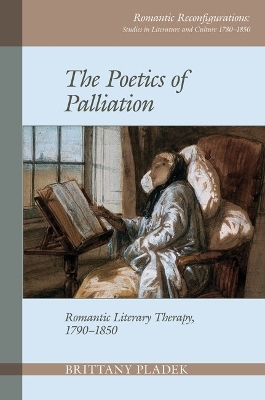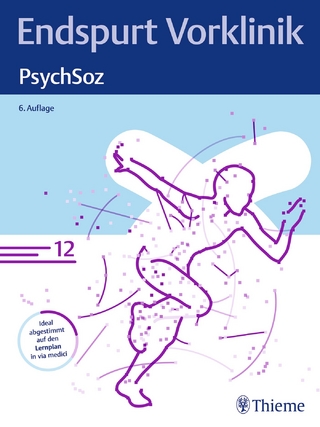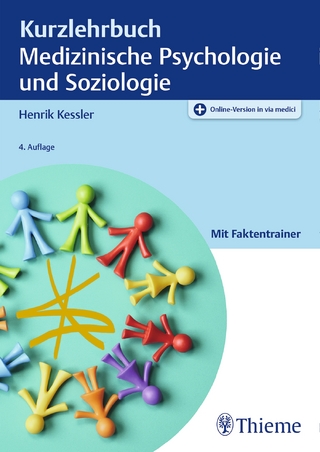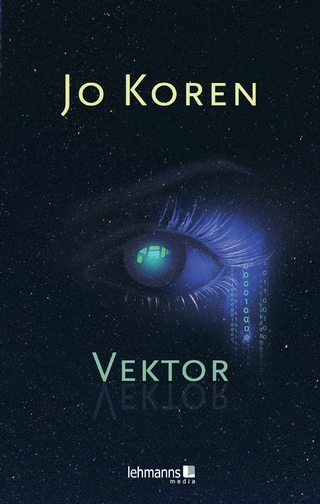
The Poetics of Palliation
Romantic Literary Therapy, 1790–1850
Seiten
2022
Liverpool University Press (Verlag)
978-1-80085-478-9 (ISBN)
Liverpool University Press (Verlag)
978-1-80085-478-9 (ISBN)
The Poetics of Palliation argues that Romanticism developed richer literary therapies than its contemporary reception remembers. By reading Romantic writers against Georgian medical ethics, Poetics recovers their models of literature as comfort and sustenance, challenging a health humanities tradition that sees literary therapy primarily as cure.
Can literature heal? The Poetics of Palliation argues that our answers to this question have origins in the Romantic period. In the past twenty years, health humanists and scholars of literature and medicine have drawn on Romantic ideas to argue that literature cures by making sufferers whole again. But this model oversimplifies how Romantic writers thought literature addressed suffering. Poetics documents how writers like William Wordsworth and Mary Shelley explored palliative forms of literary medicine: therapies that stressed literature’s manifold relationship to pain and its power to sustain, comfort, and challenge even when cure was not possible. The book charts how Romantic writers developed these palliative poetics in conversation with their medical milieu. British medical ethics was first codified during the Romantic period. Its major writers, John Gregory and Thomas Percival, endorsed a palliative mandate to compensate for doctors’ limited curative powers. Similarly, Romantic writers sought palliative approaches when their work failed to achieve starker curative goals. The startling diversity of their results illustrates how palliation offers a more comprehensive metric for literary therapy than the curative traditions we have inherited from Romanticism.
Can literature heal? The Poetics of Palliation argues that our answers to this question have origins in the Romantic period. In the past twenty years, health humanists and scholars of literature and medicine have drawn on Romantic ideas to argue that literature cures by making sufferers whole again. But this model oversimplifies how Romantic writers thought literature addressed suffering. Poetics documents how writers like William Wordsworth and Mary Shelley explored palliative forms of literary medicine: therapies that stressed literature’s manifold relationship to pain and its power to sustain, comfort, and challenge even when cure was not possible. The book charts how Romantic writers developed these palliative poetics in conversation with their medical milieu. British medical ethics was first codified during the Romantic period. Its major writers, John Gregory and Thomas Percival, endorsed a palliative mandate to compensate for doctors’ limited curative powers. Similarly, Romantic writers sought palliative approaches when their work failed to achieve starker curative goals. The startling diversity of their results illustrates how palliation offers a more comprehensive metric for literary therapy than the curative traditions we have inherited from Romanticism.
Brittany Pladek is Associate Professor of English at Marquette University.
Acknowledgments
Introduction
1 Therapeutic Holism: The Persistence of Metaphor
2 From John Stuart Mill to the Medical Humanities
3 ‘Soothing Thoughts’: William Wordsworth and the Poetry of Relief
4 Palliating Humanity in The Last Man
5 John Keats’s ‘Sickness Not Ignoble’
6 Thomas Lovell Beddoes’s ‘Fictitious Condition’
Works Cited
Index
| Erscheinungsdatum | 18.03.2022 |
|---|---|
| Reihe/Serie | Romantic Reconfigurations: Studies in Literature and Culture 1780-1850 ; 8 |
| Verlagsort | Liverpool |
| Sprache | englisch |
| Maße | 156 x 234 mm |
| Themenwelt | Geisteswissenschaften ► Sprach- / Literaturwissenschaft ► Anglistik / Amerikanistik |
| Geisteswissenschaften ► Sprach- / Literaturwissenschaft ► Literaturgeschichte | |
| Geisteswissenschaften ► Sprach- / Literaturwissenschaft ► Literaturwissenschaft | |
| Studium ► 1. Studienabschnitt (Vorklinik) ► Med. Psychologie / Soziologie | |
| ISBN-10 | 1-80085-478-1 / 1800854781 |
| ISBN-13 | 978-1-80085-478-9 / 9781800854789 |
| Zustand | Neuware |
| Haben Sie eine Frage zum Produkt? |
Mehr entdecken
aus dem Bereich
aus dem Bereich


